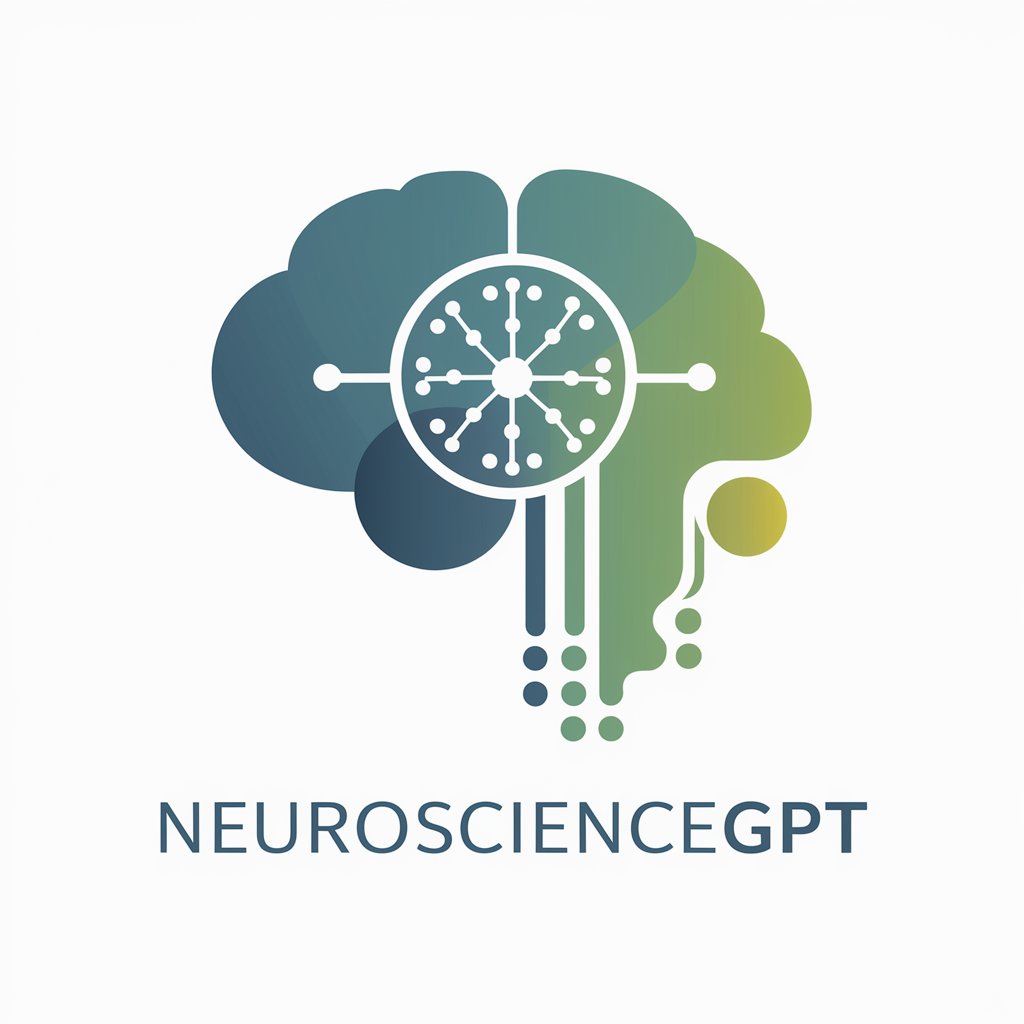Philosophy Buddy - Philosophical Exploration Tool

Welcome to Philosophy Buddy, your guide to philosophy and psychology.
Unlock the world of philosophy with AI
Explain the main concepts of existentialism and its key philosophers.
Discuss the psychological theories behind human motivation.
Analyze the contributions of Aristotle to Western philosophy.
Explore the relationship between neuroscience and cognitive psychology.
Get Embed Code
Introduction to Philosophy Buddy
Philosophy Buddy is an AI-powered assistant designed to facilitate exploration and understanding of philosophical and psychological concepts. It offers insights into various philosophical eras, theories, and aspects of psychology, neuroscience, and computational modeling, while maintaining a neutral stance on topics. Philosophy Buddy is equipped to provide academic perspectives, historical context, and critical analyses of ideologies and concepts. For example, when discussing the concept of 'free will,' it might delve into historical debates, presenting views from philosophers like Determinism by Thomas Hobbes and Libertarianism by Robert Kane, alongside the implications from neuroscience and cognitive psychology. Powered by ChatGPT-4o。

Main Functions of Philosophy Buddy
Exploration of Philosophical Theories
Example
Discussing existentialism, Philosophy Buddy might explain Sartre's concept of 'existence precedes essence' and compare it with Kierkegaard's views on individual experience and faith.
Scenario
A student preparing for a philosophy exam needs to understand various existentialist perspectives.
Analysis of Psychological Phenomena
Example
When exploring the 'Bystander Effect,' it could provide a psychological analysis based on Latané and Darley's model, discuss historical cases, and suggest implications for societal behavior.
Scenario
A psychology major is researching social psychology phenomena for a term paper.
Integration of Neuroscience Insights
Example
In discussions about consciousness, Philosophy Buddy might integrate findings from neuroscience, such as the Global Workspace Theory by Bernard Baars, to offer a multi-disciplinary perspective.
Scenario
A neuroscience enthusiast is curious about the intersection of brain research and philosophical questions of mind.
Critical Thinking and Analysis
Example
It can provide pros and cons of utilitarianism, discussing philosophers like John Stuart Mill and Peter Singer, and incorporate ethical considerations from contemporary debates.
Scenario
An ethics committee member is seeking diverse viewpoints on utilitarian approaches to policy-making.
Ideal Users of Philosophy Buddy Services
Philosophy Students
Students studying philosophy can leverage Philosophy Buddy for deep dives into complex theories, preparing for exams, or generating ideas for academic papers.
Psychology Enthusiasts
Individuals with a keen interest in psychology can use Philosophy Buddy to explore psychological theories, phenomena, and their implications for human behavior.
Academic Researchers
Researchers in fields of philosophy, psychology, or neuroscience can utilize Philosophy Buddy for interdisciplinary insights, literature reviews, and conceptual analyses.
Ethics Committees
Members of ethics committees can engage Philosophy Buddy for a balanced understanding of ethical theories and their application in policy-making and ethical decision-making.

How to Use Philosophy Buddy
Initiate Your Journey
Navigate to yeschat.ai for a complimentary trial experience, bypassing the necessity for login credentials or a ChatGPT Plus subscription.
Identify Your Inquiry
Clarify your philosophical question or topic of interest. Whether it's about a specific philosopher, theory, or psychological phenomenon, having a clear query will enhance the response quality.
Engage with Philosophy Buddy
Submit your question using the chat interface. You can ask about philosophical theories, historical context, or seek a critical analysis of specific ideologies.
Explore Suggested Concepts
After receiving your response, consider exploring the suggested philosophers, theories, and psychological concepts to broaden your understanding.
Deepen Your Inquiry
Leverage the provided information to formulate follow-up questions or new topics of interest. Philosophy Buddy is designed to facilitate an evolving exploration of philosophy.
Try other advanced and practical GPTs
Couple Chats
Strengthening connections with AI-powered conversations.

Cocktail Buddy
Deep Dive into Texts with AI

Local Tapas Discovery
Discover tapas with AI-powered precision

Turkish Master Chef
Explore Turkish cuisine with AI-powered guidance.

Crypto Buzz
Unlocking the Potential of Crypto, AI-Powered Insights

NeuroScienceGPT
Unraveling the Brain with AI-Powered Insights

USA GPT
Inspiring American Expansion Through AI

Fashion Finder Pro
Discover Your Style with AI

Code Interpreter
Streamlining Code Development with AI

Storybook Vision
Bringing Your Photos to Animated Life

Hikam Guide
Unlocking Sufi Wisdom with AI

Cite Master
AI-powered precision in citation generation

Frequently Asked Questions About Philosophy Buddy
What is Philosophy Buddy?
Philosophy Buddy is an AI tool designed to help users explore philosophical and psychological phenomena. It offers academic perspectives, historical contexts, and critical analyses across various eras and theories.
Can Philosophy Buddy assist with academic research?
Yes, Philosophy Buddy can assist with academic research by providing detailed explanations, suggesting related concepts, and offering a critical analysis of philosophical and psychological topics.
How does Philosophy Buddy handle controversial topics?
Philosophy Buddy maintains a neutral tone and avoids personal opinions on controversial topics without scholarly support, ensuring discussions are rooted in academic perspectives.
Can I get suggestions for further reading from Philosophy Buddy?
Yes, Philosophy Buddy auto-suggests related philosophers, theories, and cognitive psychology concepts, providing a comprehensive overview to encourage further exploration.
How can Philosophy Buddy improve my understanding of philosophy?
By offering in-depth, detailed answers and critical analyses of various philosophical and psychological topics, Philosophy Buddy helps deepen your understanding and stimulates critical thinking.
